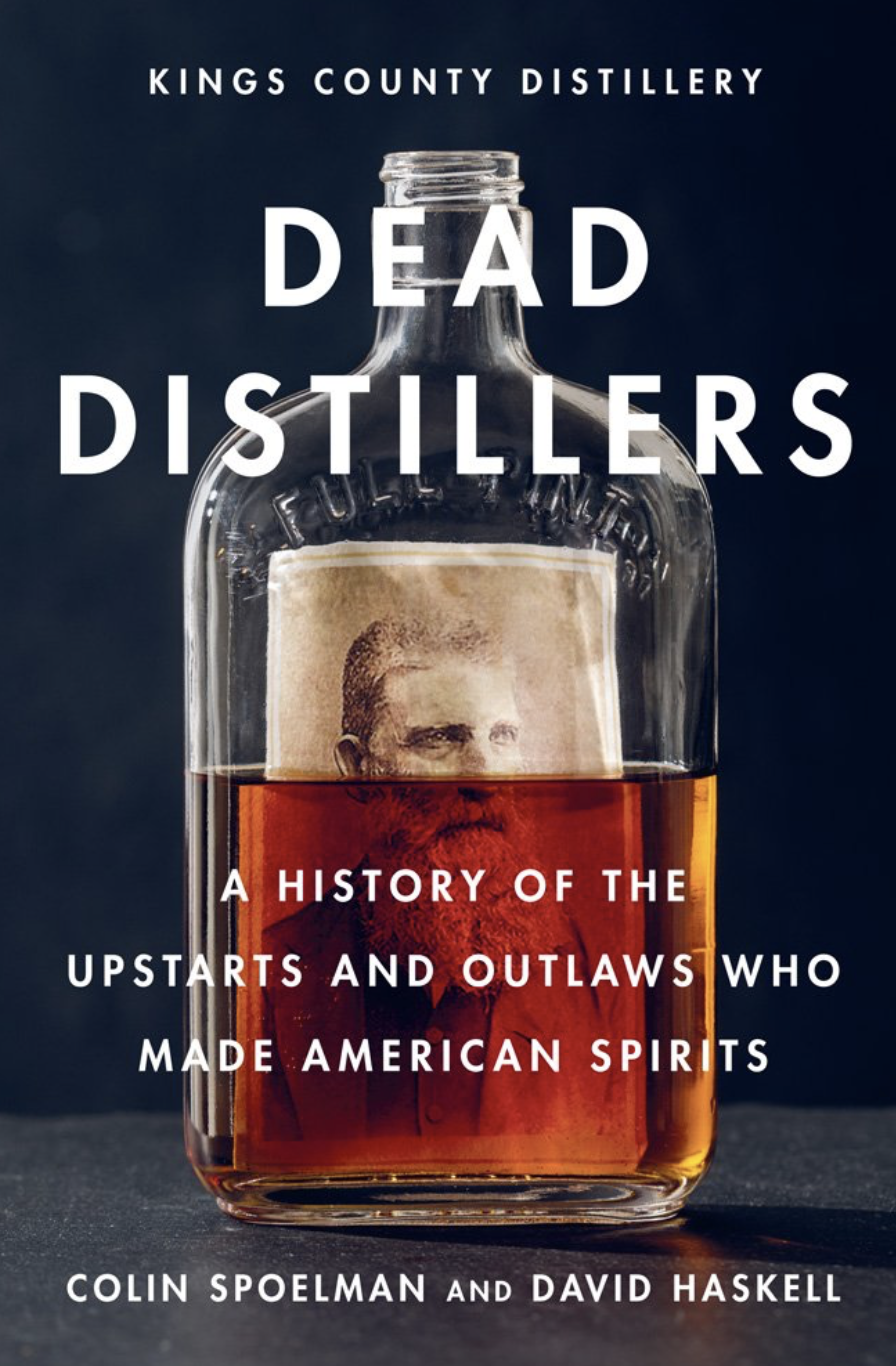When Colin Spoelman started experimenting with distilling whiskey at home in Brooklyn, he had great respect for the craft. He’s from Kentucky, after all. Bourbon country. But he also had a moonshiner’s disrespect for the formalities of the law, which restricts home distilling. “I started experimenting with a hobby still that I got off the internet,” Spoelman says. “In a way, because I discovered that you could make really good, standout whiskey as a hobbyist, I realized there was an opportunity to do this as a business.” Serendipitously, as Spoelman and his business partner David Haskell started dreaming of launching their own brand, they discovered that New York State had just passed laws that made starting a distillery much easier than it had been for decades.
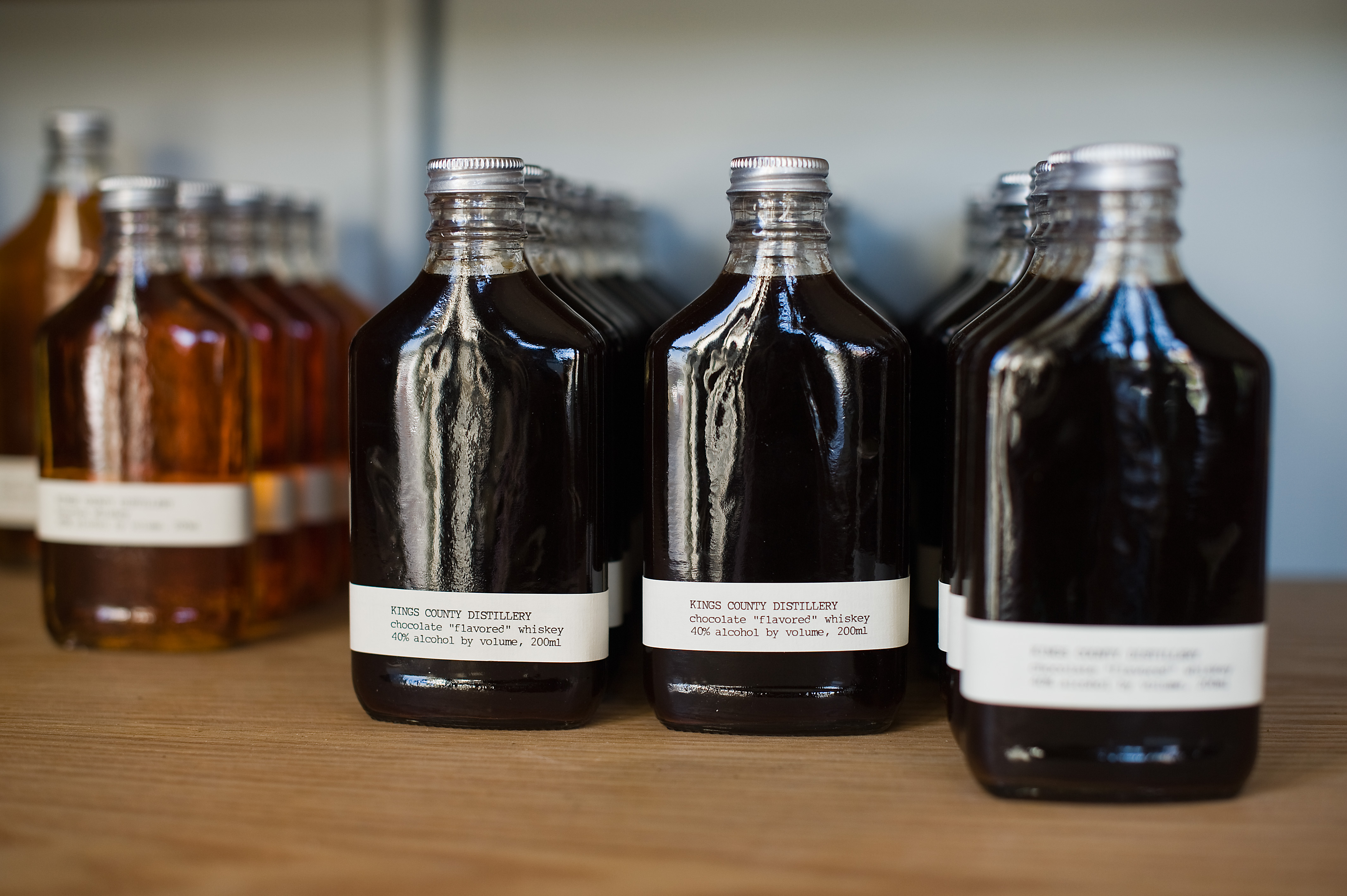
Kings County makes a chocolate whiskey flavored with ground cacao husks from Mast Brothers (Photo credit: Valery Rizzo/courtesy of Kings County Distillery)
When they began cooking their first commercial batches in 2010, operating in a tiny factory space in Williamsburg, Kings County Distillery became the first whiskey maker in New York City since Prohibition–and the smallest one in the country. Just a few years later, Kings County was named one of the best, winning the 2016 “Distillery of the Year” award from the American Distilling Institute. The company’s business grew considerably in that time too. Kings County now distills 20,000 gallons of whiskey annually, employs 25 workers, and entertains visitors in a much grander headquarters: the historic brick Paymaster Building in the Brooklyn Navy Yard. Kings County has good company in the city. More than 60 distilleries and breweries now operate here, up from less than 10 in the year Kings County launched.
What are the ingredients of Kings County’s success? How did it create a product, a brand and a following so quickly? After a conversation with its amiable co-founder Spoelman, The Bridge did some conceptual distilling of its own. We offer seven sips of wisdom from a winning business:
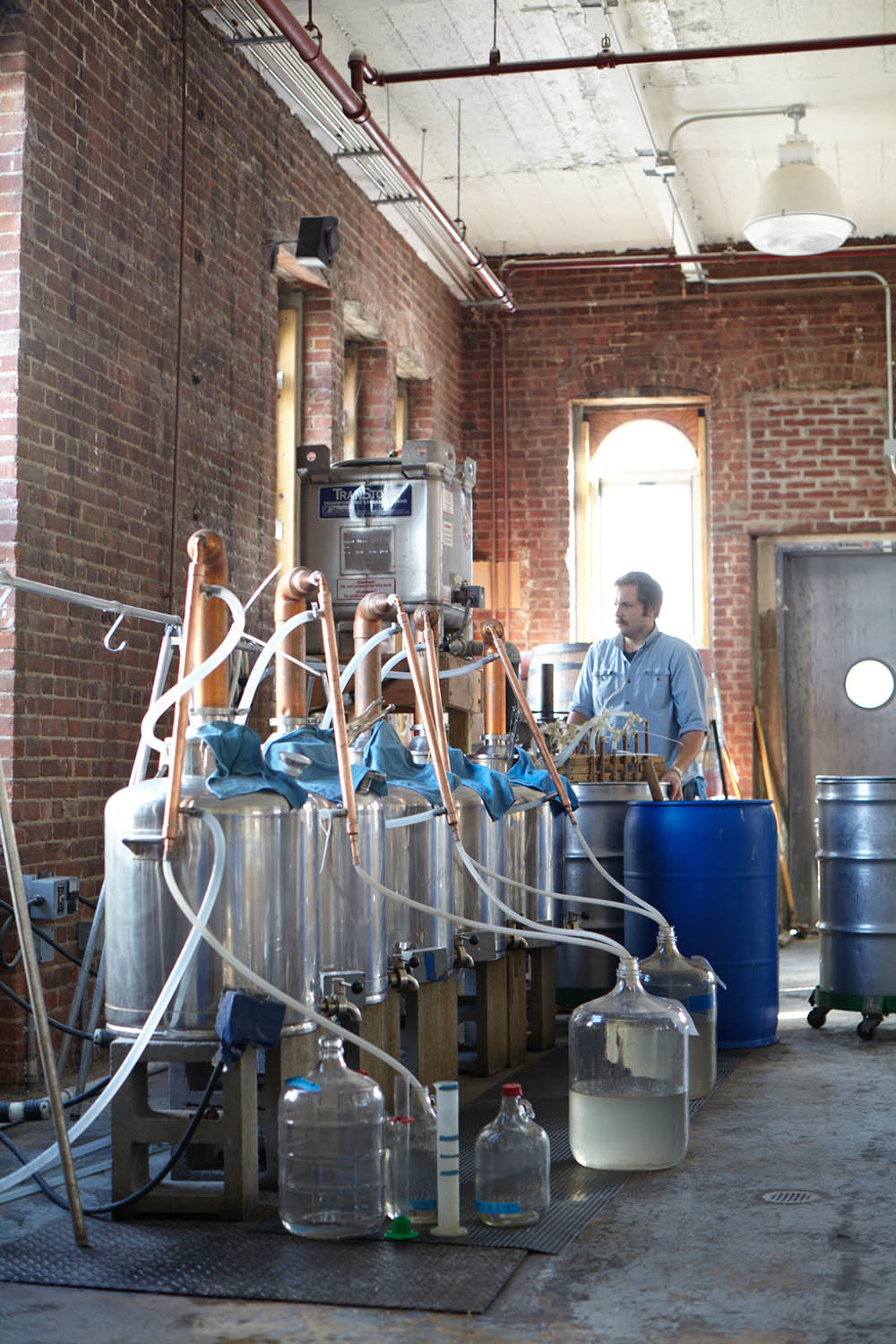
The distillers use city tap water, organic corn from upstate and barley grown nearby. (Photo credit: Max Kelly)
Choose Your Materials With Care: The traditional copper stills at Kings County are fabricated in Scotland and oak barrels in Minnesota, while the wooden fermenting tanks were built by the locally based Isseks Brothers, renowned for their rooftop water tanks. The distillers use New York City tap water, organic corn from a farm upstate and barley grown in a nearby patch at the Navy Yard. The distillery’s award-winning peated bourbon has a special ingredient: malt from Scotland. As Spoelman explains, it has been “smoked during the malting process with peat—a process that is used at many Scotch distilleries.”
Infuse Your Product With History: The Kings County Distillery’s location in the Navy Yard happens to be where the Brooklyn Whiskey Wars of the 1860s took place, when thousands of soldiers were sent to Brooklyn to enforce federal whiskey taxes among the dozens of waterfront distillers. Spoelman, a history buff, is quick to remind listeners of New York whiskey’s boisterous heyday. “Distilling was larger in New York than in Kentucky, Tennessee, Maryland and Pennsylvania combined before the Civil War,” he explains. Prohibition soon killed off distilling in most big cities “because factories couldn’t lay dormant for 13 years.” Urban distilleries turned to other businesses, but whisky makers in states like Kentucky and Tennessee waited out Prohibition and became the kings of the industry. Spoelman and Haskell have such passion for whiskey’s history that they recently published a book called Dead Distillers, celebrating the lore surrounding hootch.
Know Your Science: Two insights inform King County’s craft, as explained in Brooklyn Spirits, a guide to the borough’s distilling boom. One is that older whiskey is not necessarily better whiskey. Kings County monitors the aging process, which is always two years or more, to find the point at which the flavor of a particular whiskey and its oak barrel hit a sweet spot. The other insight is that small-batch whiskey tends to be purer than the mass-produced stuff. In chemical testing by Kings County, national brands tended to contain 40 to 50 parts per billion of methanol (a hangover-aggravating chemical), vs. Kings County’s bourbon at just 5 ppb. By growing production at a manageable rate, Kings County has more control over the process. “Even though it might seem like we’re big, we’re still profoundly smaller than the distilleries in Kentucky,” says Spoelman. “We really still are a friends-and-neighbors distillery.”
Respect Tradition, Then Experiment: Despite a deep reverence for history, Spoelman is equal parts a champion of progress. He applies that practice to his products, including a current interest in “whiskeys that either recover antiquated styles, or mix tradition in ways that are creative.” Kings County offers a classic white, unaged whiskey, it’s Moonshine brand, which a spirits critic called “absolutely spot-on corn whiskey.” But the distillery also takes flights of fancy, including its Chocolate Whiskey, made with ground cacao bean husks from nearby Mast Brothers chocolate, and its Winter Spice Whiskey, made with such ingredients as cardamom, nutmeg, clove and black peppercorns.
Ethos Is Everything: A top priority is to stay conscious of growing their business ethically. “We try to make decisions regarding the product that are good for the environment and the community,” Spoelman says. “We’re in a very politicized time right now, and people are frustrated at how infrequently they get to vote for the trajectory of the country. But every time they buy a product, they are voting for a way of doing business. We try to give back to the community, to pay decent wages, and build jobs. I think a lot of our customers appreciate our whiskeys, but also appreciate that we’re a small business that is directly contributing to the culture of the city. Larger companies just don’t do that,” he contends, adding that he feels disappointed in seeing “the same stuff you can get in an airport” at local bars when there are so many high-quality, locally made spirits.
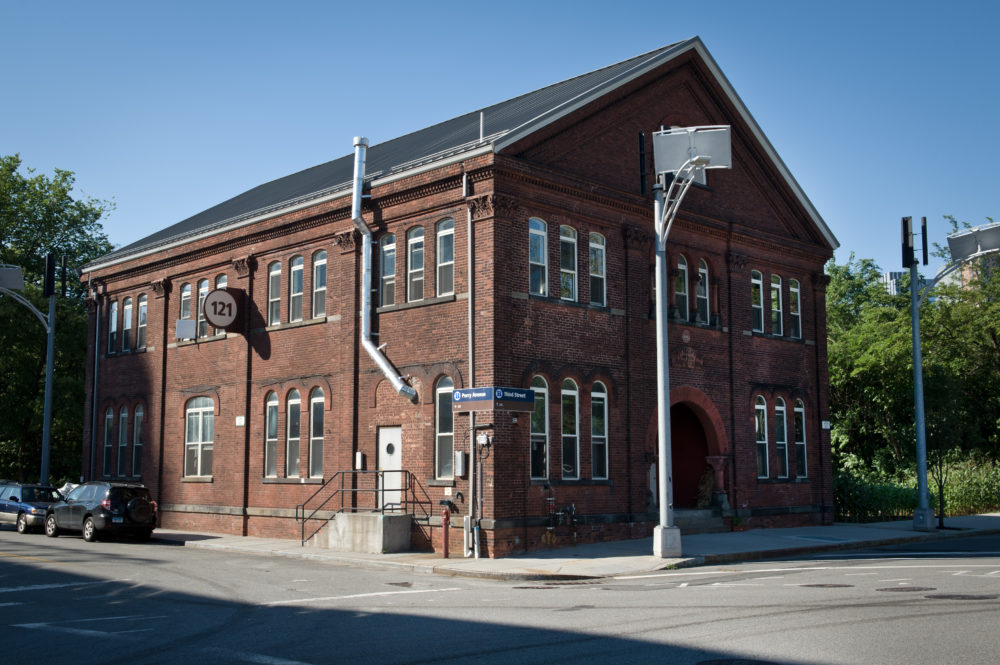
The distillery occupies the restored Paymaster Building in the Brooklyn Navy Yard (Photo credit: Valery Rizzo/courtesy of Kings County Distillery)
The Package Tells a Story: The most immediately striking thing about Kings County liquor is its packaging: typically small, clear, flask-shaped bottles with tiny, typewritten labels and a metal screw cap. The packaging practically hollers “moonshine” from across the liquor store, but some retailers go even one better and line them up on the counter so customers can pick them up and ponder that tiny label. Authenticity is persuasive, particularly in Brooklyn, and often fetches a higher price. Those 200 ml bottles of Kings County bourbon typically sell for $25, a higher cost by volume than mass-market rivals.
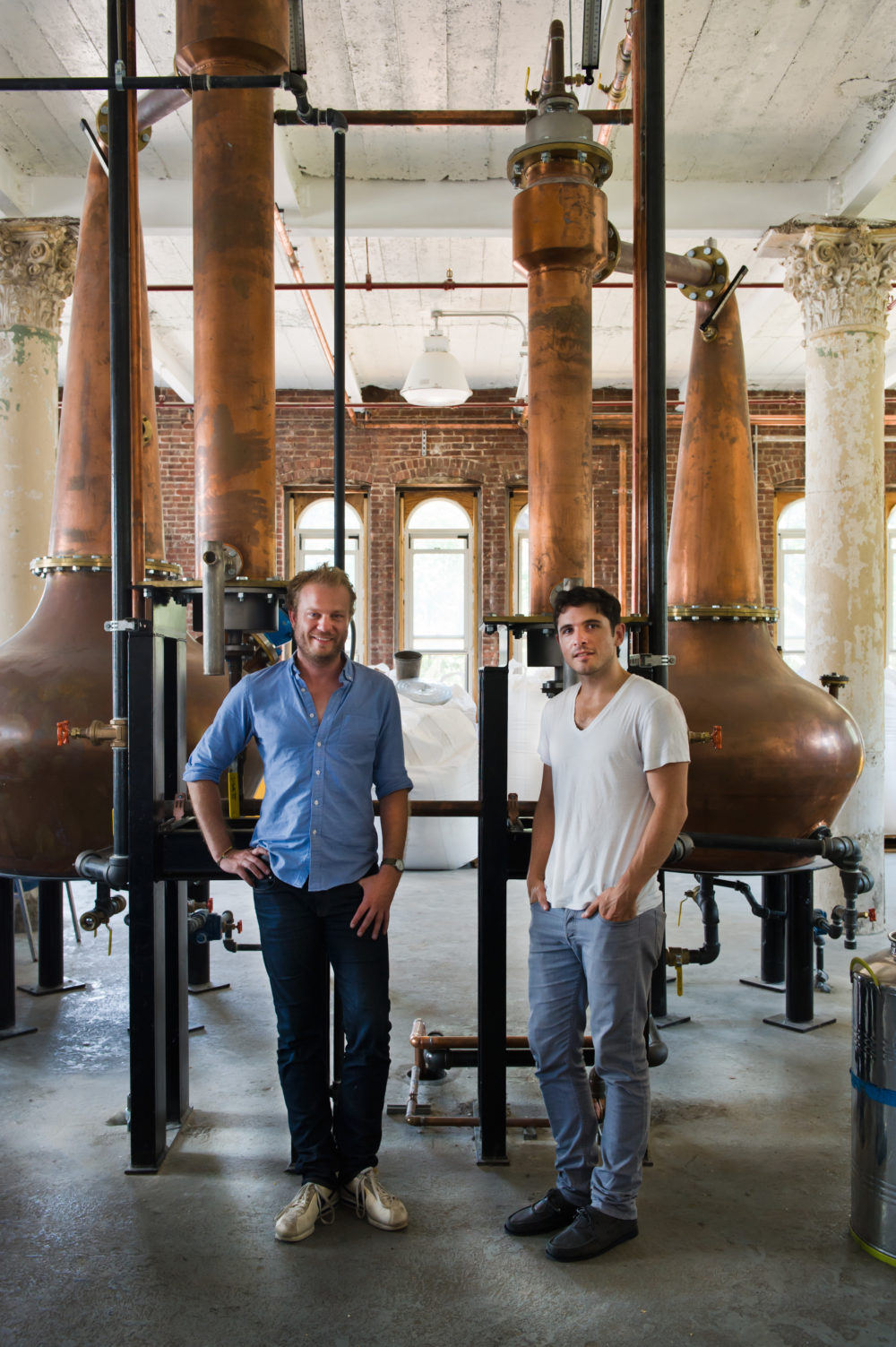
Spoelman and Haskell with traditional copper stills made in Scotland (Photo credit: Valery Rizzo/courtesy of Kings County Distillery)
Be Entertaining: King’s County’s brand is strong thanks not only to its main product, but to many events, off-site classes, and accessibility as a distillery. You can visit their current space in the Paymaster Building for a tasting, book a private tour, rent a space for an event or arrange for a whiskey specialist to host a tasting at your offsite meeting. Kings County has also partnered with other Brooklyn organizations for events like a Whiskey Wars Tour in the Navy Yard and a Dead Distillers Trolley Tour in Green-Wood Cemetery. Spoelman’s favorite event was a series of square dances at the distillery, no doubt limbered up by a jot of local product.
Spoelman is optimistic about the future of doing business in Brooklyn, despite rising costs and what he acknowledges as a prevailing opinion of long-time residents that “it’s all gone to hell.” As a historian, he tries to put things in perspective: “That’s why we live in cities. They are dynamic and vibrant and they change. For better or for worse.” Spoelman finds comfort in the tradition of his business, even as the community transforms itself around him. “Maybe that’s why I like whiskey so much, too, because it removes anxiety, encourages patience, and reminds me of how long it took to make, which is usually something that tends to buffer against change.”
